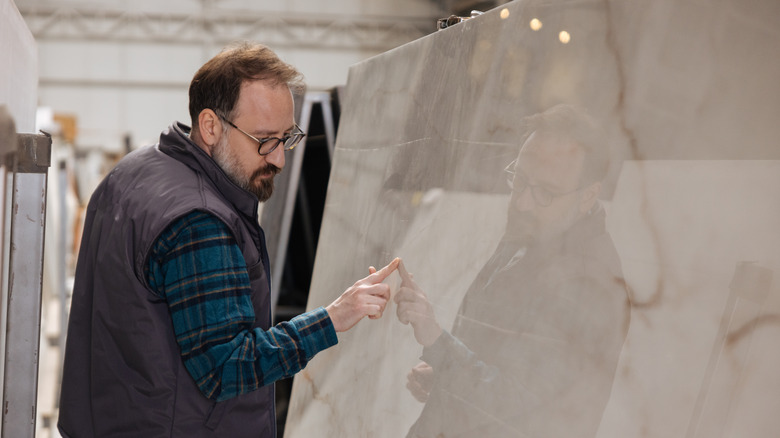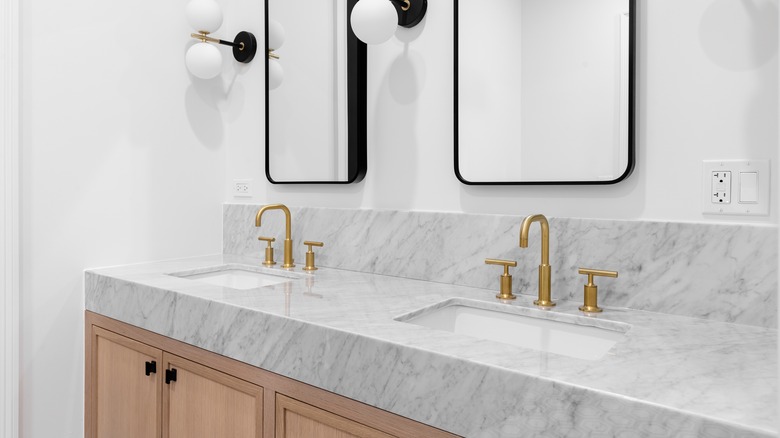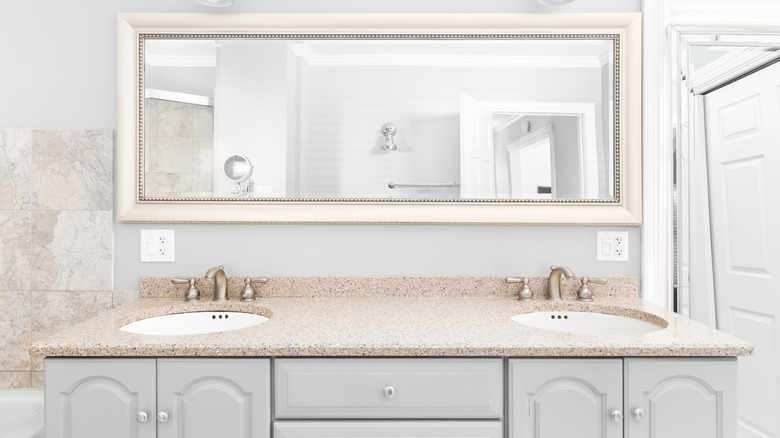The Countertop Material That Does Not Belong In Your Bathroom
It can be easy to get caught up in the excitement of designing a new bathroom or planning a bathroom remodel, but it's important to choose surfaces and finishes that will maximize your bathroom's functionality and stand up to long-term use. Don't forget: a countertop shouldn't just look good, it should stand up to daily use for a long time, too.
Some materials are definitely more practical than others when it comes to bathroom countertops. Marble and other porous materials are a poor choice for bathroom countertops, but there is a surface we can recommend for those who still love marble's luxurious look.
Marble requires constant upkeep
Dealing with a bathroom mid-renovation can make anyone feel impatient, but if you want your countertops to hold up to daily wear and tear, you shouldn't rush through the selection process. So while it may be a trendy material, marble simply doesn't make the cut. It's prone to long term problems like staining and etching, especially in the bathroom, where it's difficult to escape moisture.
Before you think that regular bouts of sealing and resealing are the solution, be warned: Sealants won't always prevent your marble from staining, either. They simply give you more time to spot the spill before it soaks into the porous marble. If you diligently clean and polish your marble countertops, they may last for a while, but the luxury material simply isn't realistic for most people's lifestyles, especially in kids' bathrooms or shared family bathrooms, where messes often go unnoticed.
Quartz offers beauty and functionality
So, what can you do to achieve that marble-like feel without all the upkeep? Check out quartz instead. Because quartz countertops are usually made to order, they can accommodate a wide range of colors and styles and be easily cut to fit any odd shapes or corners.
Quartz isn't just beautiful and unique; it's also one of the easiest bathroom countertop materials to maintain. Unlike marble, quartz is non-porous, and won't stain or discolor nearly as easily. Quartz is also a smarter countertop choice than marble for busy households.


